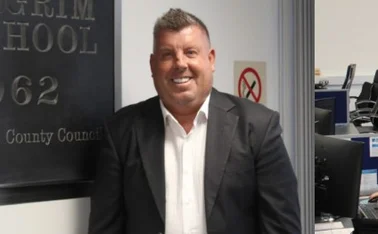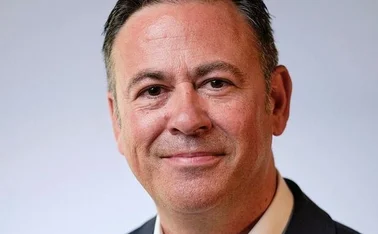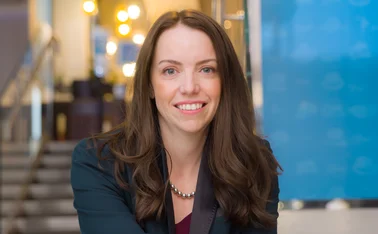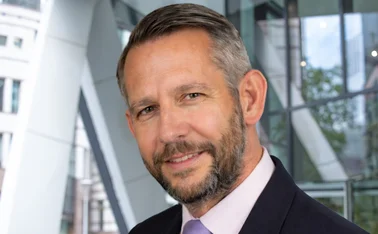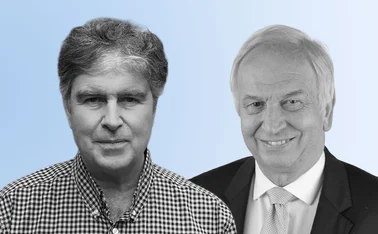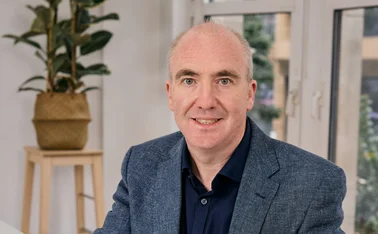
Profile: Peter Cullum, Towergate founder and GRP chairman
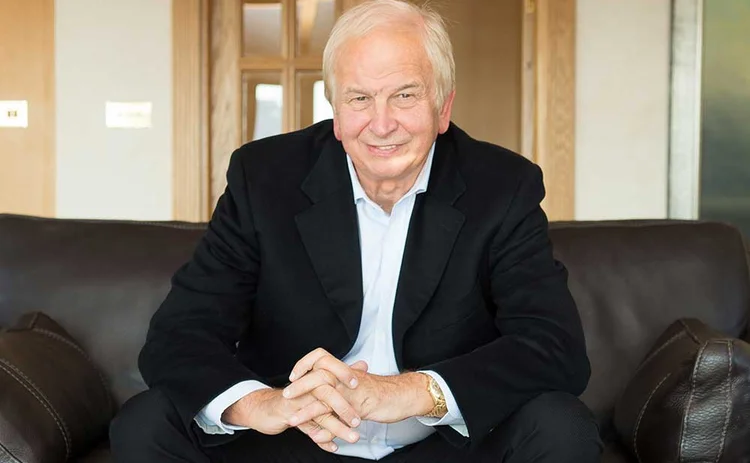
Towering presence: Whatever your opinion of consolidation, there can be no doubting the impact that Cullum has had on the broker market, but what does the future hold for his latest project GRP?
“I was mentally hurt by the demise of Towergate,” Peter Cullum admits.
After the financial implosion of 2014/15 it is easy to forget just what the business had achieved.
From an office in Hornchurch, Cullum and his team built an empire stretching the length and breadth of the country controlling billions of pounds of GWP and employing thousands of people. While it had its troubles it never went the way of, say, Woolworths, clients were always served and jobs were safeguarded.
He still believes fervently in the consolidation model (see box below) and remains heavily involved. He is the largest shareholder in GRP, majority owner of MVP, founder of Trimulgherry Investments and, since July, a significant shareholder in Ataraxia.
He has made plenty of money over the years. Why at 68 is he still consolidating?
He loves it and confesses that he still needs achievement: “This, to me, emotionally, is my remediation. This has provided me with a springboard to validate what we did.”
After joining Royal Insurance Group in 1969, a one-year MBA in 1974, and time at Commercial Union and London & Edinburgh, he was head hunted in 1991 to be MD of Economic Insurance, a small Scandinavian-owned insurance company based in Kent.
He did his due diligence, knew it was loss making and challenged but thought there were ways to fix it.
“Within six months the parent company went into liquidation – it didn’t feel good at the time,” he remembers.
With every venture you would reinvent things if you had a second chance of going back in history and reliving stuff
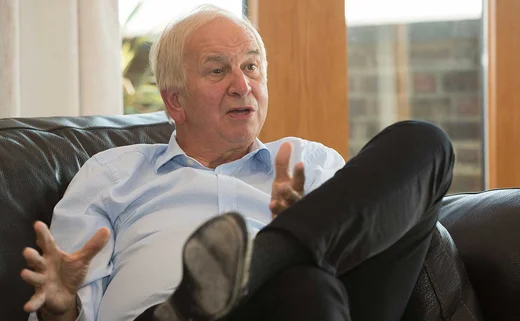
First buy
Cullum acknowledges being bruised when the parent company “went down the toilet quite spectacularly”, spent some time feeling sorry for himself, then looked forward. At the end of 1993 he led an MBO from the liquidator.
“It was a tipping point in life, exciting and scary at the same time.”
By 1996 the insurer was profitable and he sold it to Hiscox turning the £6m purchase price into £36m.
Which brings the loop around to the launch of Towergate in 1997.
Cullum’s mantra was, and still is, “distribution, distribution, distribution” as he created a combination of MGAs and regional brokers. “It was new and different and people didn’t really understand what we were doing,” he recalls.
The early years were “a struggle” in an office in Hornchurch “where you probably should have been inoculated before you went inside”.
The middle years were far from ordinary as Towergate’s buying spree made over a hundred people cash millionaires.
“We got some of it wrong. There’s no learning without mistakes and we made a lot of mistakes. You do when you are trying new things. There is no certainty.”
But it was certainly fun.
“It was the most exciting time I’ve ever had in business,” he recollects. “We were quite good at it.”
And he argues forcefully that the system was working very well for regional brokers.
“A lot of people overlook the fact that our model was based on providing decent underwriting results to insurers.
“We weren’t short changing our clients it was giving them great value and insuring with good quality markets that gave great service.”
Consolidation
There is almost evangelical zeal when Peter Cullum says that describing consolidation as the “evil of the industry is nonsense”. In his view while insurers get “intoxicated by the topline” in their dealings with the global brokers they do not make much money out of them. Namely because the broking giants do a really good job of “squeezing every single pip” out of a deal. It is the regional and local players who miss out on the high remuneration.
“All large organisations that have been successful in the last 50 years have done it by consolidation,” he maintains, listing the likes of Marsh, Aon and Willis, as well as Aviva, Amazon and Apple. Consolidation from his perspective is a payday for the owner, leverage and the chance to invest.
“When you are bigger you are able to cut a better deal with your suppliers. That’s just how it is. It is not about beating insurers up,” he says.
“Without sounding the death knell of smaller brokers, life is going to be really tough over the next 10 years.” Capital is going to be needed for compliance and digital marketing.
“Brokers need to upskill, they need investment to supply the necessary funds that flow into a digital marketing strategy,” Cullum concludes. “If you can’t do that you become irrelevant over time.”
Selling up
In early 2008 he agreed to sell up to private equity firm Candover but “right at the death they moved the goalposts” and he said no. Telling other shareholders must have been awkward at best.
“Hindsight is a great sight,” he begins. “They have probably never forgiven me. It was partly my fault.”
Walking away from that deal was, he claims, a principled move. However, he always thought they would come back or there would be another deal. Then all of a sudden the global financial crash changed the economic landscape.
“I don’t look back too often. But thanks for reminding me,” he nods.
In 2010 came Advent International and the final years started. The plan was simple, they invest £200m and float the business.
“They were smart guys,” Cullum accepts. But the relationship never worked. “They had an obsession, as some private equity houses do, with consultants.”
It all leads to the R word: “I look back at it with regret.”
He recruited Mark Hodges from Aviva as CEO in 2011 and, along with Andy Homer, agreed to get out the way taking on a non-executive post.
The Advent deal was structured in such a way that he watched his shareholding ebb away as Towergate failed to hit its financial targets.
Curiously he is at ease with this fact from the past. “It was maths,” he stresses. “I didn’t enjoy it much but it is what it is.”
Among the failures, moving SME business to Manchester in 2014 was totemic. In Cullum’s words it was “nonsense” and he was as “vociferous” as possible against the swerve to become “master of the big ticket”.
What we do is misunderstood. It is perceived as if you are into consolidation that it’s akin to devil worship

Collapse
By October 2014 Hodges had departed and the true scale of the collapse came into public view. Profits plummeted and the interest on debt became overwhelming.
The group chief financial officer Scott Egan, chairman Alastair Lyons and others were in the eye of the storm, which ultimately saw the unsecured creditors win the takeover battle.
Cullum had also negotiated with the junior bondholders, but in April 2015, having lost – like others – his entire shareholding, he bid the business a fond farewell.
“With every venture you would reinvent things if you had a second chance of going back in history and reliving stuff,” he sums up.
Integration, or more accurately a lack thereof, is what constantly arises when commentators try to map Towergate’s descent.
He is not in total agreement. “The huge frustration was that we saw the dismantling of a model in favour of one we weren’t convinced we had the skill and bandwidth to make work.”
Adding: “The fundamental problem was we didn’t stick to our knitting. We were very good at SME.”
Yet integration crops up in the conversation far more as he plans not to repeat any mistakes with GRP.
Dealmaker
In his career he has struck over 300 deals, which one was the best?
“Holiday Home Insurance in Hornchurch. It gave me the initial platform to move forward. The most significant in terms of size and returns was a close call between Fusion and Paymentshield.
“We paid top dollar [for Fusion and Paymentshield]… but the financial dynamics were pretty sexy for us.”
New venture
In 2013 he presented the GRP plan to Towergate. At the time they “politely declined” so Cullum struck out alone, with their agreement. He went to Towergate again when GRP morphed into also buying stakes in regional brokers and came away with the same result.
GRP is now heading towards £750m of premium across its various parts, including managing general agents.
There is a type of integration going on for the hub and spoke model of regional broking. The likes of County, purchased this January, will maintain their local brand but as others are bought they will be absorbed into a hub. There won’t be double digit brands.
Technology is also being co-ordinated. In particular he claims that with its new data warehouse GRP can slice and dice data better than insurers. “The million dollar question is how do you effectively cross sell? I’m not saying we are going to solve it 100% but we now have the data to do it.”
The more joined-up approach will come with more acquisitions. He predicts that with eight deals on the blocks it will break through the £1bn barrier by this time next year.
Where history has repeated itself though is Aviva. The insurer pulled its agency with GRP in May – since then neither has commented on the details. Cullum is not about to start now.
He has previously fallen out with the provider. In 2008/9 he pulled £400m of premium away from the insurer after a “commission haircut” from the then UK GI CEO Igal Mayer.
In the end Towergate returned to the partnership, but that looks years off in this case.
“Initially in fairness we had one or two questions,” Cullum observes as he denies the split fractured GRP’s consolidation pipeline.
“We have provided assurances that we have insurers champing at the bit to write those portfolios. Aviva’s decision has created some significant opportunity for other insurers.”
Continuity
His pitch to sellers remains consistent. In his opinion GRP will continue to buy good quality regional brokers and bring a product, compliance and digital uptick to their offering.
GRP is backed by Penta Capital and Cullum insists there is no pressure to sell.
That said when asked about when he or others might leave, his enigmatic response is that at some point he will consider what could “loosely” be called “a crystallisation”.
But the timeframe for any such change is distant: “In 12 months I will be telling you that we have made all these acquisitions and we are now into integration.”
Broking has clearly changed during Cullum’s career.
“You could survive as a traditional player in 1997 but the threats now are enormous for smaller brokers,” he repeats. “I don’t mean they have suddenly become hopeless it is just the way buyer behaviour is changing.”
It has been a career of enormous success and high-profile downsides. A mixture of self-criticism, drive, learning from experience while looking to the future, he will continue to work buying businesses and building teams until he stops enjoying it.
Arguably he was the most high profile broker for nearly 20 years and at the forefront of changing the sector. So what is his legacy – has he made the industry better?
“That’s for others to decide,” he concludes. “I think with others I have helped remodel stuff. I still think what we do is misunderstood. It is perceived as if you are into consolidation that it’s akin to devil worship.”
Only users who have a paid subscription or are part of a corporate subscription are able to print or copy content.
To access these options, along with all other subscription benefits, please contact info@insuranceage.co.uk or view our subscription options here: https://subscriptions.insuranceage.co.uk/subscribe
You are currently unable to print this content. Please contact info@insuranceage.co.uk to find out more.
You are currently unable to copy this content. Please contact info@insuranceage.co.uk to find out more.
Copyright Infopro Digital Limited. All rights reserved.
As outlined in our terms and conditions, https://www.infopro-digital.com/terms-and-conditions/subscriptions/ (point 2.4), printing is limited to a single copy.
If you would like to purchase additional rights please email info@insuranceage.co.uk
Copyright Infopro Digital Limited. All rights reserved.
You may share this content using our article tools. As outlined in our terms and conditions, https://www.infopro-digital.com/terms-and-conditions/subscriptions/ (clause 2.4), an Authorised User may only make one copy of the materials for their own personal use. You must also comply with the restrictions in clause 2.5.
If you would like to purchase additional rights please email info@insuranceage.co.uk


